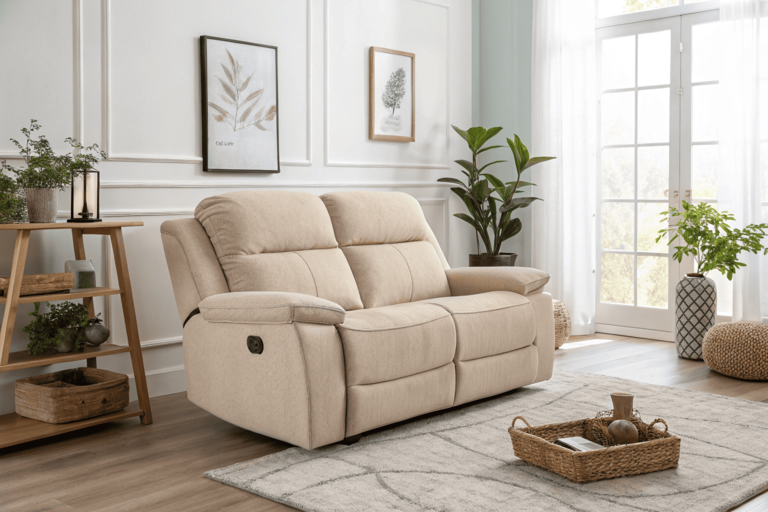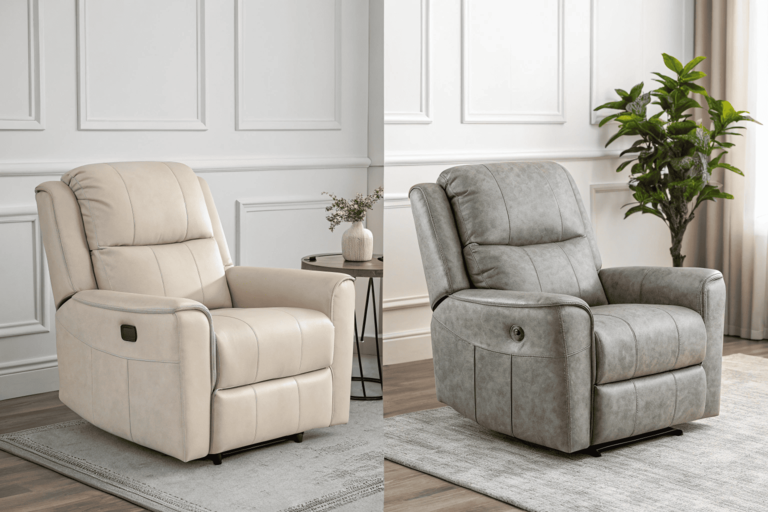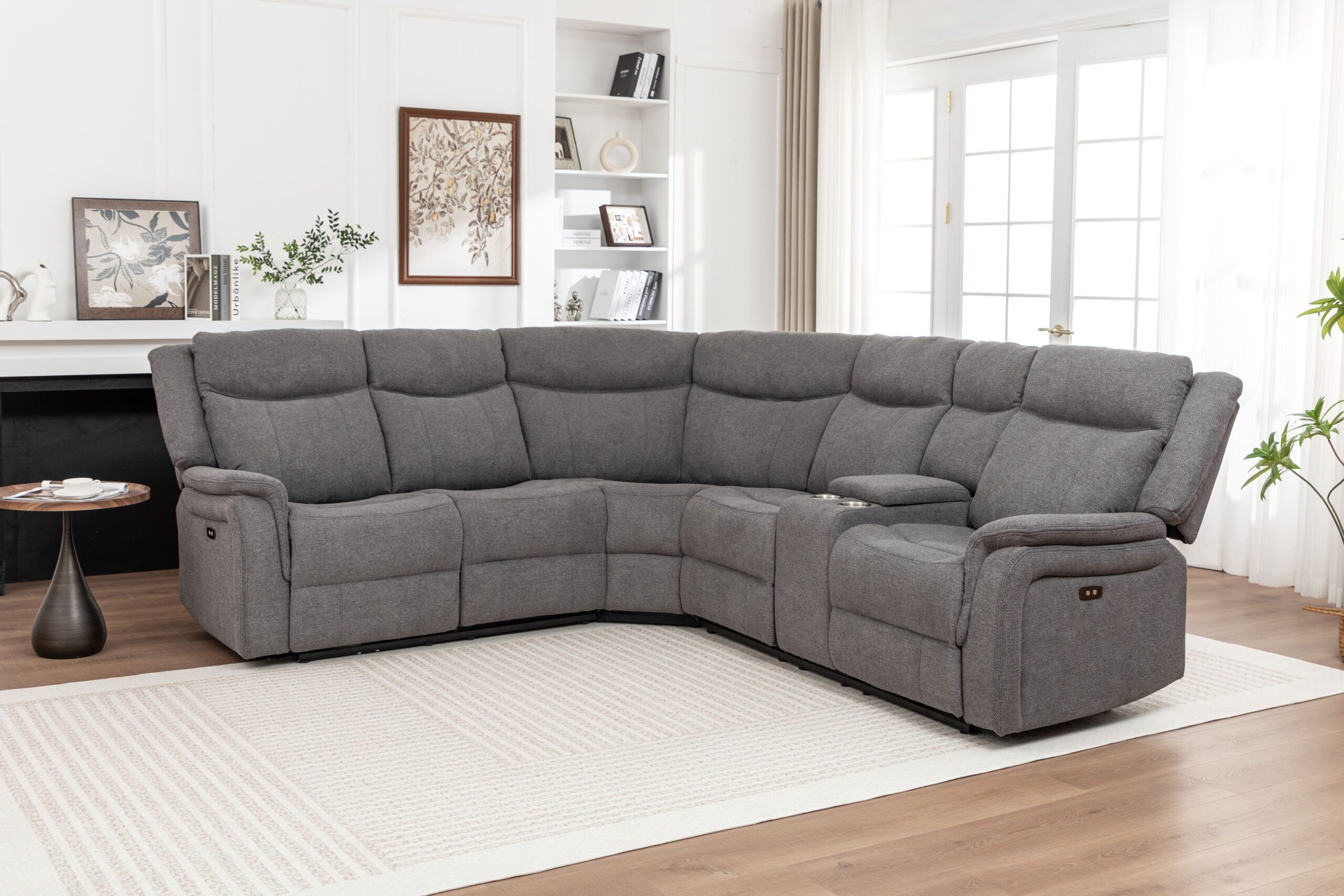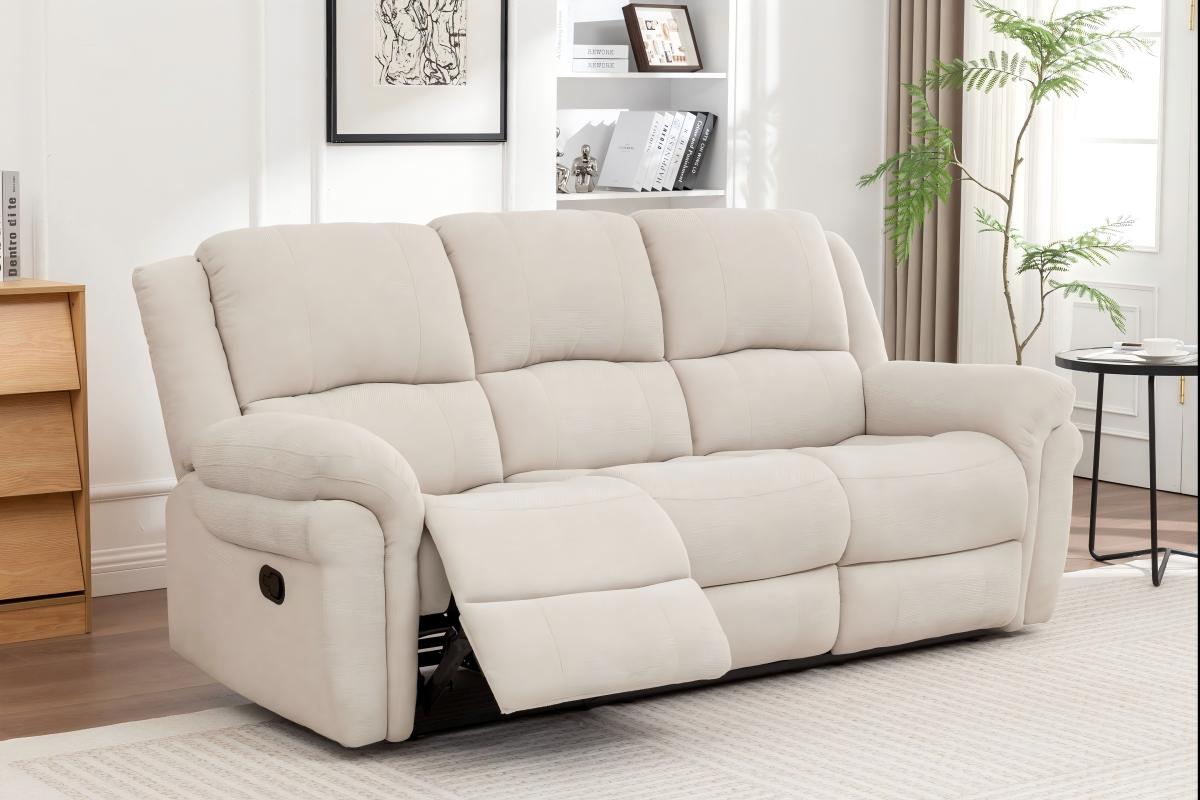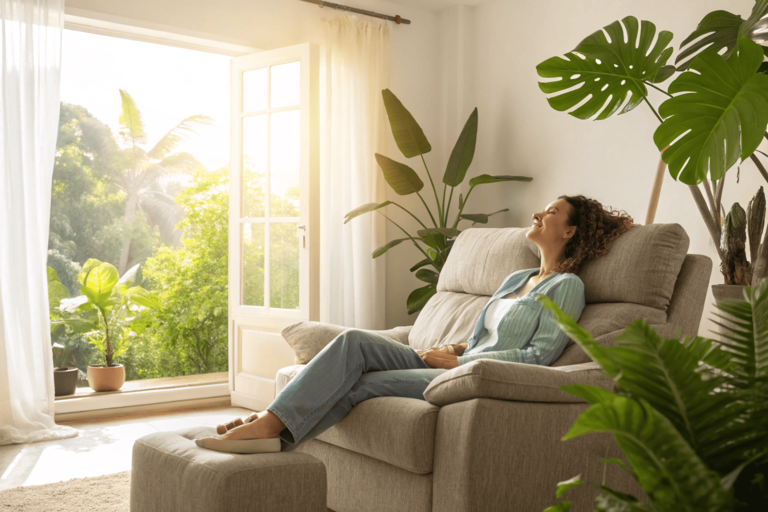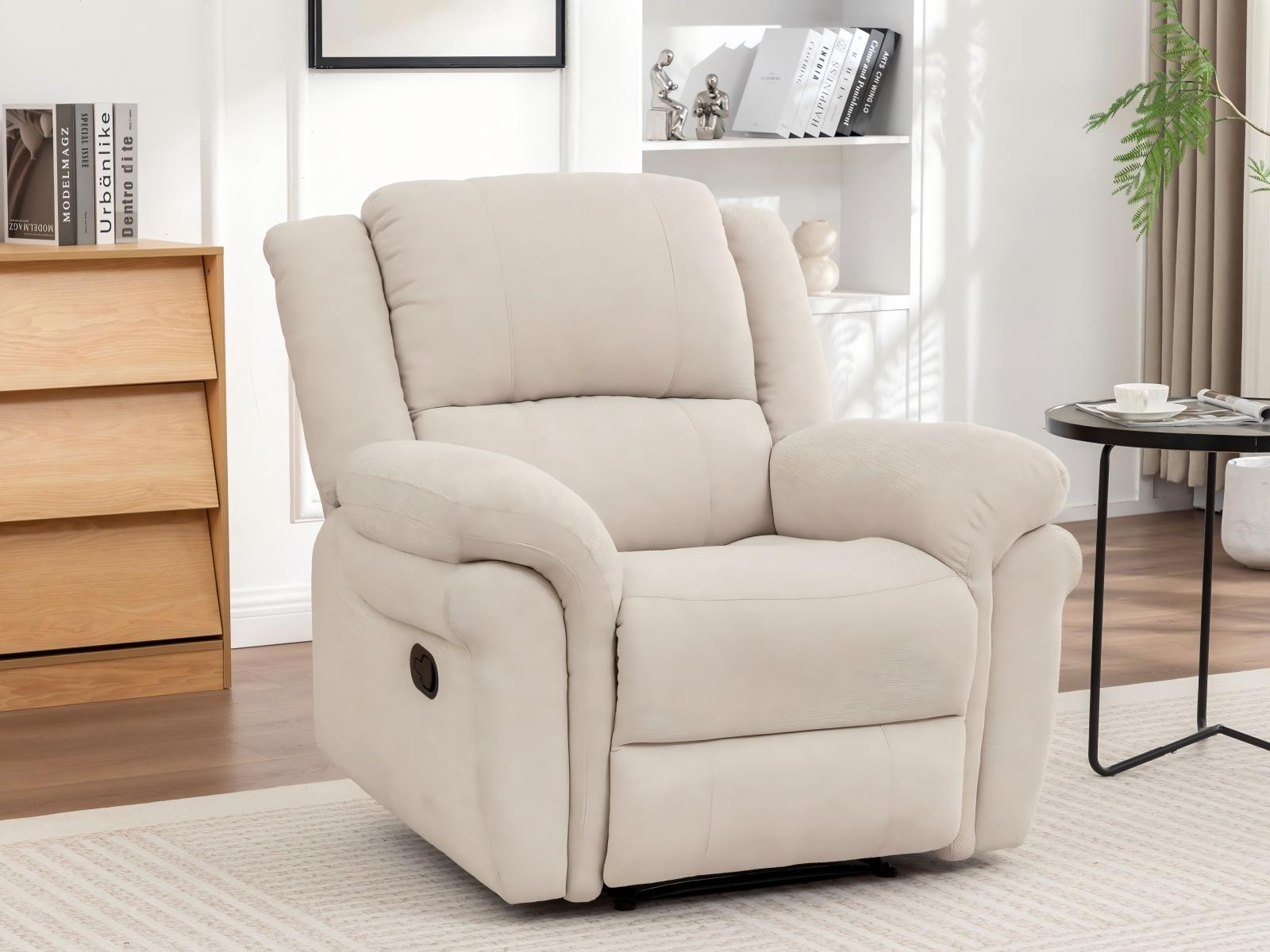More retailers are turning away from leather recliners. Buyers want comfort, variety, and affordability—and fabric models check all those boxes.
Fabric recliners are taking over because they’re cooler, softer, more affordable, and easier to customize—making them a better fit for the 2025 buyer.
Even if leather used to dominate the market, the shift is happening fast. Keep reading to understand why fabric recliners are winning, and how to adjust your sourcing strategy before the next season hits.
Fabric vs. Leather Recliners: Which One Is Better in 2025?
Leather recliners1 used to be the obvious choice. Now, they’re losing ground. Buyers care more about cost, comfort, and climate fit—and fabric is taking the lead.
Fabric recliners are better for today’s buyers because they offer greater comfort, lower prices, and more design flexibility than leather.
Comfort and Feel
Leather feels cold in winter and sticky in summer. Fabric stays consistent and breathable. Especially in warm regions, customers prefer recliners that don’t feel sweaty after 10 minutes of sitting.
| Feature | Leather Recliner | Fabric Recliner |
|---|---|---|
| Temperature Control2 | Gets hot or cold easily | Breathable and balanced |
| Touch & Softness | Firm and smooth | Soft and cozy |
| Noise When Moving | Often squeaky | Silent and quiet |
Price and Profit
Leather recliners require expensive materials and longer production time. Fabric recliners3 are lighter, easier to manufacture, and ship more affordably. This helps importers hit better price points.
Style and Customization
Leather comes in a few basic colors. Fabric opens up new possibilities—neutral tones, rich textures, and trending color palettes. Retail buyers want SKUs that feel “fresh.” Fabric makes that easier to deliver.
The Most Common Problems with Leather Recliners (And How Fabric Solves Them)
Leather may look high-end, but that doesn’t mean it’s perfect. Many customers return leather recliners for the same reasons—comfort, care, or climate issues.
Fabric recliners solve common leather problems like heat retention, cracking, and color limits—while still offering long-term use.
Real Issues Buyers Face
Here are the top complaints we hear about leather recliners:
| Problem | Leather | Fabric |
|---|---|---|
| Cracks or peels over time | Very common | Rare with quality textiles |
| Feels hot or sticky | Often in warm climates | Breathable and cool |
| Limited color options | Mostly brown/black | Dozens of modern tones |
| Harder to repair or reupholster | Expensive & difficult | More flexible to replace parts |
Durability Reconsidered
Many assume leather lasts longer, but modern performance fabrics have changed that. Some fabric recliners now pass 25,000+ Martindale rubs. That’s enough for hotel or commercial use.
Cleaning and Maintenance
Leather requires special products to clean and condition. It’s sensitive to sunlight, scratches, and humidity. Fabric is more forgiving. Many of our recliners now include stain-resistant coatings that repel spills and wipe clean with water.
Why Were Recliners Mostly Leather Before—and What Changed?
For years, leather meant “premium.” Customers thought it was more durable, more stylish, and more luxurious. That story has changed.
Leather once ruled the recliner world, but rising costs and new buyer expectations have opened the door for fabric to take over.
Why Leather Dominated Before
- Perception of luxury and status
- Durable when handled properly
- Easier to export during low-cost raw material years
- Preferred by high-end hospitality projects
But these advantages faded as:
- Leather costs increased globally
- Sustainability awareness grew
- Younger buyers sought soft, modern aesthetics
Changing Buyer Demographics
Today’s buyers care more about comfort, style, and flexibility. They want to match their furniture to a theme—Scandinavian, Japandi, or boho. Leather doesn’t always fit those styles.
Fabric makes more sense for a generation focused on comfort, Instagram-worthy design, and ethical sourcing.
Are Reclining Sofas Still in Style? Here’s What 2025 Buyers Want
Recliners have a reputation problem. Some buyers think they’re bulky or old-fashioned. But modern recliners have evolved fast—especially in fabric.
Recliner sofas are very much in style—especially those with compact designs, neutral fabrics, and multi-functional features.
What’s Trending in 2025
- Neutral tones4: gray, taupe, cream
- Slim arms and compact bodies
- Zero-wall or space-saving recliners5
- USB charging and power control
- Modular options that blend in
These styles work in apartments, open-plan living rooms, and even home offices. Fabric helps these products look more casual and seamless.
Why Fabric Recliners Are Better for Hot, Humid, or Air-Con-Free Homes
In warmer regions, leather becomes a liability. It absorbs heat. It sticks to skin. It ages faster when exposed to sun and humidity. Fabric avoids all that.
Fabric recliners are cooler, more breathable, and more durable in warm or humid climates—making them the better choice for tropical and subtropical markets.
What Buyers Complain About
In the Middle East, Southeast Asia, and parts of South America, we hear the same feedback from retailers:
- “Leather gets too hot.”
- “It’s sticky during summer.”
- “Customers complain about sweating.”
Fabric models eliminate these issues. Breathable fabric keeps airflow around the skin. It feels more like a bed or lounge chair—and that’s exactly what buyers want.
| Feature | Leather Recliner | Fabric Recliner |
|---|---|---|
| Skin contact in heat | Often sticky | Stays soft and breathable |
| UV resistance | May fade or crack | Withstands sunlight better |
| Moisture impact | Can mildew/crack | Dries faster, less risk |
Cost-Efficient for Importers
In hot zones, returns or complaints due to comfort are expensive. With fabric recliners, importers report lower return rates and higher post-sale satisfaction, especially in warm regions.
Fabric Recliners and Sustainability: The Eco-Friendly Advantage
More buyers are asking questions: Is this animal-free? Is this sustainable? Can I sell this without backlash from conscious consumers?
Fabric recliners offer an ethical, affordable, and scalable alternative to leather—fitting perfectly into the sustainability expectations of modern buyers.
What Retail Buyers Want to See
- No animal-derived materials
- Water-based glues and coatings
- FSC-certified wood frames
- Recycled or low-impact fabrics
We’ve adapted our own production to meet those standards, offering BIFMA-certified, formaldehyde-safe, and low-emission foam options.
Leather vs. Fabric: The Green Comparison
| Sustainability Factor | Leather Recliner | Fabric Recliner |
|---|---|---|
| Animal use | Yes | No |
| VOC emissions | Higher during tanning | Lower with water-based glue |
| Carbon footprint | High | Lower (esp. with recycled) |
| Waste at production | Difficult to recycle | Easier to reuse or repurpose |
Retailers selling to eco-conscious markets (like Europe, Australia, or younger U.S. buyers) benefit from offering fabric lines with green credentials. It builds trust and opens doors for partnerships.
Manufacturer’s Insight: Why We See Fabric Recliners Leading the Future
As a direct manufacturer of recliner sofas and office seating for global B2B buyers, we’ve witnessed this shift firsthand.
Over the past two years, especially since 2023, we’ve received a growing number of inquiries for fabric recliner models—especially in warmer regions like the Middle East, Southeast Asia, and South America. Retailers tell us their customers are:
- Looking for softer, cooler options in tropical climates
- Asking for non-leather, animal-friendly materials
- More responsive to trendy colors and modern styles that only fabric can offer
Our team at QYRASIEL has invested in new-generation fabrics like linen-touch polyester, microfiber velvet, and stain-resistant finishes, offering both style and durability. We’ve also optimized packaging and frame structure to ensure lower shipping costs and faster container loading, which makes fabric recliners even more attractive for importers.
For clients concerned about branding, we also offer private label options, color customization, and MOQ flexibility—which are easier to manage with fabric upholstery than with genuine leather.
Bottom line?
Fabric recliners are no longer the “cheap alternative”—they’re the smarter, more market-ready solution in 2025.
If you’re sourcing for modern lifestyles, entry-level comfort, or design-driven retail spaces, now is the perfect time to reconsider your recliner lineup.
Conclusion
Leather recliners still have a market, but that market is shrinking. Buyers today are looking for comfort, affordability, style, and sustainability. Fabric recliners answer all those needs—without compromise.
They are cooler to sit on. They cost less to ship. They offer more style options. And they align better with today’s values.
If you’re a retailer, importer, or distributor, this is the time to shift your lineup. Offer your customers what they actually want. At QYRASIEL, we’ve already helped dozens of global buyers transition from leather to high-quality fabric recliners—successfully and profitably.
And we’re ready to help you do the same.
-
Discover the reasons behind the decline in leather recliner popularity and what buyers are now prioritizing in their choices. ↩
-
Learn about the temperature control differences between fabric and leather recliners to choose the best option for your comfort needs. ↩
-
Explore the advantages of fabric recliners, including comfort, affordability, and design flexibility, to make an informed choice. ↩
-
Discover the latest trends in neutral tones for home decor to enhance your living space with modern and stylish choices. ↩
-
Learn about zero-wall recliners and how they can maximize space in your home while providing comfort and style. ↩

